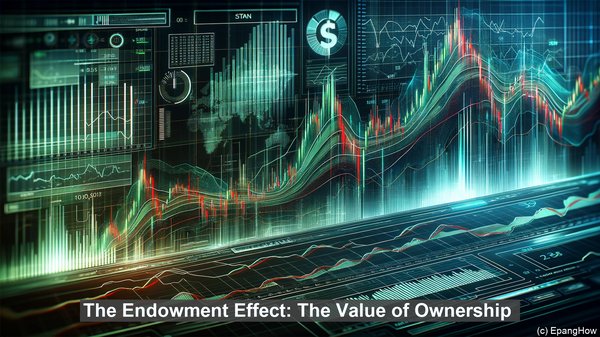Introduction: The Fascinating World of Behavioral Economics
Hello and welcome! Behavioral economics is a captivating field that explores the intersection of psychology and economics. It delves into the various cognitive biases and heuristics that influence our decision-making. Today, we’ll be focusing on two intriguing concepts: the endowment effect and the disposition effect.

The Endowment Effect: The Value of Ownership
The endowment effect refers to the tendency we have to ascribe a higher value to something simply because we own it. Imagine you’re given a mug as a gift. Its objective value might be, say, $10. But if you were to sell it, you might demand a much higher price, perhaps $15. This is because the mug has acquired a sentimental value, and parting with it feels like a loss. The endowment effect has been observed across cultures and has significant implications in various domains, from consumer behavior to negotiations.
The Disposition Effect: The Fear of Regret
The disposition effect, on the other hand, deals with our tendency to hold onto losing investments for longer than we should. Let’s say you bought a stock, and its value starts to decline. While a rational investor would sell it to minimize losses, many individuals hold onto the stock, hoping it will rebound. This behavior can be attributed to the fear of regret. We dread the possibility of selling a stock, only to see its value rise later. By holding onto it, we can avoid the regret of a missed opportunity, even if it means incurring further losses.

Key Differences: Ownership and Loss Aversion
While both the endowment effect and the disposition effect involve deviations from rational economic behavior, they differ in their underlying mechanisms. The endowment effect is rooted in the value we attach to ownership, while the disposition effect is driven by our aversion to losses. The former is about overvaluing what we have, while the latter is about avoiding the regret of letting go. These two concepts highlight the complex interplay between emotions, cognition, and economic decision-making.
Implications and Applications
Understanding the endowment effect and the disposition effect can have practical implications. For businesses, recognizing the endowment effect can inform pricing strategies and marketing techniques. By emphasizing ownership and personalization, companies can enhance perceived value. On the other hand, the disposition effect can shed light on investment patterns and the dynamics of financial markets. By studying these phenomena, policymakers and economists can gain insights into market behavior and potentially design interventions to mitigate irrational decision-making.
